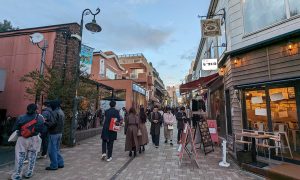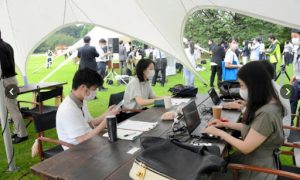In recent years, as the Japanese government has liberalizedimmigrantspolicy, more and more foreigners are choosingImmigration to Japan. Whether throughWork, study, invest, get married, or those who have acquired long-term residency in Japan by other means, have started a new life in this land. However, the realImmigration to JapanWhat is life really like?What are the challenges for foreign residents living in Japan? And what are the opportunities worth seizing?
In this article, we will look at theWork, socialization, acculturation, education, health care and cost of livingand other perspectives, to fully reveal theReal Life in Japan for Foreign ResidentsThe program is designed to allow you to be well prepared before you decide to immigrate!
1. Linguistic and cultural adaptation:Immigration to JapanLife's first hurdle
📌 Challenges: High language threshold and cultural differences
- Japanese society's interest inJapanese language abilityIt is extremely demanding, and not knowing Japanese can cause a lot of inconvenience in your life and work.
- Japanese culture speaksEtiquette, rulesThe foreigner who is new to the country may feel a sense of restraint and even a little "out of place".
✅ Opportunity: Life is smoother when you master the Japanese language
- Provided by the Government of Japan and the private sectorA large number of Japanese language learning resources, such as language schools and community-based free Japanese language programs.
- Many businesses, schools, and government organizations are increasingly accepting expatriates and providing services in English.
💡 Adaptation recommendations:
- Advance study of basic Japanese (e.g., N4, N3 level) and mastery of at leastDaily communication skillsThe
- Attend more local social events, to understand the Japanese way of thinking and to enhance the sense of integration.
2. Employment environment in Japan: Career development opportunities for expatriates
📌 Challenges: Work visa restrictions and competition for jobs
- Many visa types (e.g. student visa)Restriction of working hoursOnly the "Highly Qualified Person Visa" or the "Management Visa" offers more freedom.
- Japanese companiesPrefer to hire JapaneseThe foreigner needs to have a special skill or a high educational background to be more competitive.
✅ Opportunities: Rising demand for expatriates, high salaries in some sectors
- IT, medical, engineering, education, tradeand other industries, the demand for expatriate talent has been growing in recent years.
- Highly talented person visaIt allows talented expatriates to enjoyAcquisition of permanent residence within 1 yearThe policy preferences.
💡 Job Search Advice:
- untimelyLearning Japanese (N2 or higher), to improve competitiveness in the workplace.
- focusExpatriate Recruitment Website(e.g. GaijinPot, Daijob, Indeed Japan).
- Utilization of social networks (LinkedIn, BizReach in Japan), expanding job search contacts.
3. Housing: how to find suitable accommodation?
📌 Challenge: Rental policies are not foreigner friendly
- Many Japanese landlordsUnwilling to rent to foreignersbecause of language communication difficulties or concerns about breach of contract.
- Guarantors, deposits and gratuities are required for rentalsThe additional costs are higher.
✅ Opportunity: Increase in foreigner-friendly apartments
- Large cities (e.g. Tokyo, Osaka, Nagoya) In recent years there has been an influx ofSpecialized rental services for foreignersof real estate agents.
- The Japanese government encourages landlords to rent housing to foreigners.Some banks start offering expat home loansThe
💡 Rental Advice:
- Look for rental websites that specialize in expatriates, such asSakura House, GaijinPot ApartmentsThe
- Consider a shared apartment (Share House)The cost is low and you can make friends.
- When purchasing a property, it is advisable to find an English-speaking real estate agent to reduce communication barriers.
4. Health care and education: how secure is the livelihood of expatriate residents?
📌 Challenges: Complex healthcare system, some hospitals do not accept foreign patients
- The Japanese medical system is highly developed, butSome hospitals do not accept foreign patients, or the doctor doesn't speak English.
- Medical care is more expensive, and going to the doctor when you don't have insurance can besth. that costs a lotThe
✅ Opportunities: high coverage of universal health care and world leadership in health care quality
- Foreign residents who have lived in Japan for more than 3 monthsMust be enrolled in Japanese health insurance (National Health Insurance or Social Insurance), medical expenses are reimbursed at 70%.
- Large cities (e.g. Tokyo, Osaka) haveMultiple hospitals offering English-language medical services, such as the International Clinic in Tokyo.
📌 Challenges: Expensive tuition at international schools, cultural differences at local schools
- JapaneseInternational school tuition is expensiveThe average yearly cost is1,500,000-3,000,000 yenThe
- Local Japanese schools have high Japanese language requirements for foreign students, and some children will need to adaptRigorous learning environmentThe
✅ Opportunities: Japanese education system is of high quality and some public schools offer foreign support.

- Government of Japan for foreign childrenFree Japanese Language Courses, to help children adapt to local schools.
- Some international schools (e.g. TokyoAmerican School in Japan) There are scholarship programs.
💡 Educational Recommendations:
- pre-screeningPros and cons of international and local schools, choosing the right educational approach for your child's situation.
- Let your child participateJapanese Language Training CourseYou will be able to adapt to the Japanese learning environment in advance.
5. Cost of living and social welfare: is it worthwhile to live as an immigrant in Japan?
📌 Challenges: Higher cost of living and higher tax burden
- Higher rent, transportation, and food costs in Tokyo and OsakaThe initial stage of adaptation requires a certain amount of financial preparation.
- Higher social security contributions such as income tax, excise tax, pensions, etc., 30% of wages may be used to pay taxes.
✅ Opportunities: good social benefits and stable income

- Japan has a well-developed social welfare system.Government subsidies for old age, healthcare, childcare, etc.The
- Cost of living varies by regionIf you choose Osaka or Fukuoka, the cost of living will be about 30% lower than Tokyo.
💡 Cost of Living Savings Advice:
- Choose to live inTokyo suburbsmaybeOsaka, Nagoyaand other cities with a lower cost of living.
- Save money when shopping by utilizing** second-hand markets (Mercari), discount supermarkets (Don Quijote)**, etc.
6. Concluding remarks:Immigration to JapanIs it a challenge or an opportunity?
For foreign residents.Immigration to JapanChallenges but also many opportunities. If it is possible toOvercoming language barriers, adapting to the workplace culture, and planning for the cost of livingWell, then Japan is undoubtedly aCountries suitable for long-term development and easy livingThe
✔ Suitable for immigrants:
✅ Foreign workers who plan to develop in Japan for a long period of time
✅ Immigrants who have some Japanese language skills or are willing to learn the Japanese language
✅ Ability to invest and want to manage visas or purchase a home by running a businessinvestment immigrationpersons
✖ People who may find it difficult:
🚫 People who can't adapt to the strict rules of Japanese society
🚫 People with limited financial means who cannot afford the high cost of living






